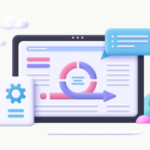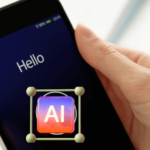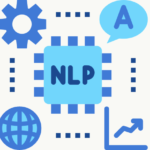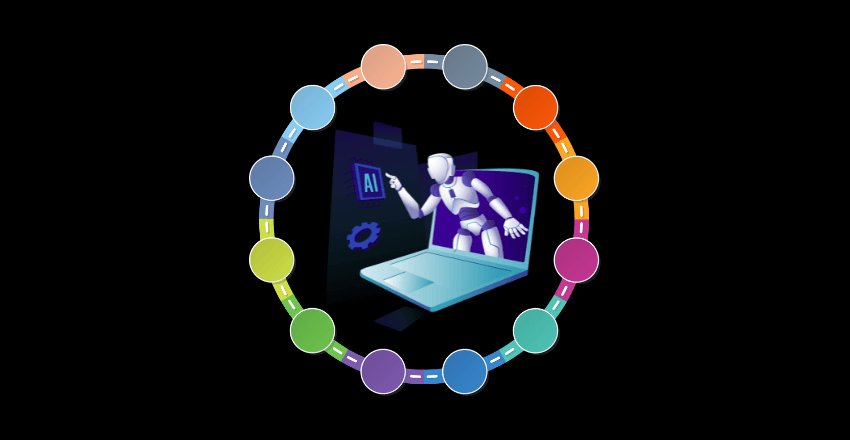 As technology evolves, so must our approach to app development. With Artificial Intelligence (AI) rapidly becoming more accessible, incorporating it into mobile app development can provide a competitive advantage and enhance the user experience.
As technology evolves, so must our approach to app development. With Artificial Intelligence (AI) rapidly becoming more accessible, incorporating it into mobile app development can provide a competitive advantage and enhance the user experience.Key Takeaways:
- AI can provide a competitive advantage in app development.
- There are various strategies for incorporating AI into mobile apps, from personalized recommendations to automated customer support.
- By leveraging AI, app developers can provide users with an enhanced experience and drive business growth.
Natural Language Processing for Enhanced User Interaction
As mobile app development continues to evolve, integrating natural language processing capabilities has become increasingly popular. Natural language processing (NLP) refers to the ability of mobile apps to process and interpret human language in a way that enables more intuitive interactions between users and the app.
By utilizing AI-powered chatbots, voice recognition, text-to-speech features, and language translation functionalities, NLP enhances the overall user experience of mobile apps. NLP can enable users to interact with apps more easily and efficiently, increasing user engagement and satisfaction.
For example, an AI-powered chatbot can assist users with commonly asked questions or tasks, such as resetting a password or finding a specific item in an app. Voice recognition can enable users to control the app hands-free, and text-to-speech functionality can read app content aloud for users with visual impairments. Language translation capabilities can also enable global users to interact with apps in their preferred language.
When implementing NLP in app development, developers can utilize code examples to illustrate the integration of these AI techniques. By incorporating NLP into their app development strategies, developers can create more user-friendly, intuitive, and engaging apps.
Personalized Recommendations using Machine Learning
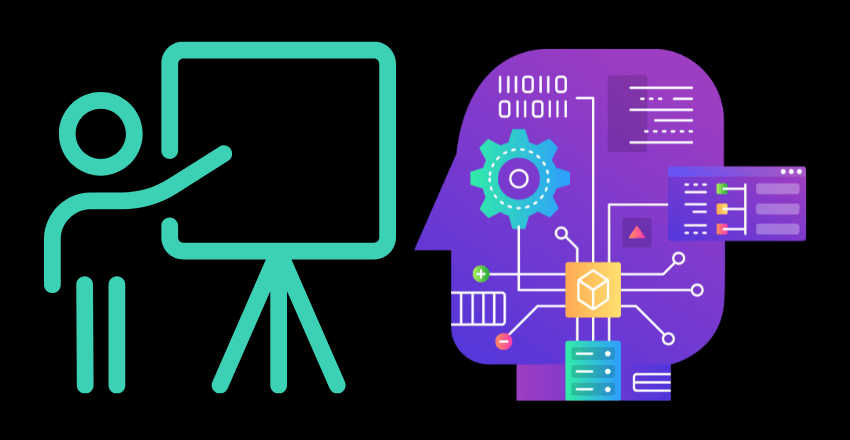
As the competition for mobile app users grows increasingly fierce, offering personalized experiences is becoming critical for businesses to stand out. Machine learning algorithms can provide tailored recommendations to users based on their behavior within the app. Personalized app recommendations can keep users engaged, increase retention rates, and drive business growth.
Machine learning algorithms analyze large sets of user data and use patterns to generate recommendations. The algorithms can process user behavior data such as clicks, views, and searches to create personalized recommendations for each user. These recommendations are unique to each user, allowing businesses to cater to individual preferences and needs.
Implementing machine learning algorithms for personalized app recommendations requires careful consideration of user behavior analysis. Businesses must collect and analyze data that reflects user preferences and behaviors to provide accurate recommendations. User behavior analysis involves tracking and sorting user data to identify patterns and generate insights.
Effective personalized app recommendations also require businesses to identify which machine learning algorithms to use. For example, collaborative filtering algorithms analyze user data to find patterns and make recommendations based on similar users’ behavior. Content-based filtering algorithms, on the other hand, analyze user data to recommend items with similar features to those the user has previously interacted with.
Personalized app recommendations using machine learning algorithms are essential for businesses looking to improve user engagement and increase retention rates. User behavior analysis is the foundation of effective recommendation systems, and businesses must identify the right machine learning algorithms to use to create unique and accurate recommendations for each user.
Image and Video Recognition for Enhanced Visual Content
With the power of AI, mobile apps can provide enhanced visual content through image and video recognition, facial recognition, and object detection. AI-powered image recognition allows apps to identify and classify images in real-time.
Similarly, video analysis enables apps to analyze and extract valuable data from videos. Facial recognition capabilities allow apps to recognize and identify human faces, while object detection algorithms can identify and distinguish various objects in images and videos.
| AI Techniques for Enhanced Visual Content | Benefits for Mobile Apps |
|---|---|
| AI-powered image recognition | Real-time image classification and enhanced visual content |
| Video analysis | Data extraction from videos for improved user experience |
| Facial recognition | Identification of users and personalized app interactions |
| Object detection | Identification and classification of objects in visual content |
By incorporating these AI techniques into mobile app development, app creators can provide a more interactive and visually engaging experience for their users, which can lead to increased engagement and retention.
Sentiment Analysis for Improved User Feedback
One of the most useful applications of AI in mobile app development is sentiment analysis. This technique involves using AI algorithms to analyze user feedback and detect emotions to obtain insights into the user experience. By doing so, app developers can gain valuable information to identify areas for improvement.
A key aspect of sentiment analysis is user feedback analysis, which involves collecting and analyzing feedback from users to determine how they feel about the app. This can include feedback submitted through reviews, surveys, or in-app messaging features.
The main goal of sentiment analysis is to detect the user’s emotions towards the app. Emotion detection is vital to help address any issues that users may be experiencing with the app, whether it be frustration due to a glitch or satisfaction with a specific feature.
By incorporating sentiment analysis into app development, developers can optimize apps to improve user experience, satisfaction, and engagement. For example, positive feedback about a particular feature can be leveraged to market the app to new users, while negative feedback can be addressed to improve the app’s performance and satisfaction levels.
Implementing sentiment analysis is a powerful tool for app developers, as it provides insights into the user’s emotional state and their overall perception of the app. With sentiment analysis, developers can ensure that their app is meeting user needs, fostering brand loyalty, and driving business growth.
Predictive Analytics for Data-Driven Insights

AI can enable predictive analytics within mobile apps, allowing for data-driven insights and informed decision-making. By utilizing machine learning algorithms, predictive analytics can analyze data and make predictions about future outcomes, facilitating better planning and resource allocation.
One of the key benefits of predictive analytics is the ability to identify trends and patterns in user behavior, allowing for data-driven optimizations and improved user experience. Predictive analytics can also help with performance tracking, identifying areas for improvement, and predicting potential roadblocks.
| Predictive Analytics Example | Description |
|---|---|
| Predictive maintenance planning | Predictive analytics can be used to identify potential equipment failures, allowing companies to schedule preventative maintenance and reduce downtime. |
| Customer churn prediction | Predictive analytics can help identify which users are at risk of churning, allowing businesses to take proactive measures to retain them. |
| Forecasting sales | Predictive analytics can analyze data on customer behavior, sales trends, and market conditions to provide accurate sales forecasts. |
By implementing predictive analytics in app development, businesses can gain valuable insights into user behavior and make data-driven decisions to improve their app. Predictive analytics can also help businesses better understand market trends and respond proactively to changes. Overall, AI-powered predictive analytics play a critical role in optimizing mobile apps for success.
Fraud Detection and Security Enhancement with AI
AI can be a powerful tool for enhancing app security and mitigating fraud risks. By leveraging AI algorithms for anomaly detection, biometric authentication, and overall app security, developers can enhance the safety and security of their apps.
AI-powered fraud detection is an effective way to detect fraudulent activity within an app. By analyzing user behavior and detecting unusual patterns or transactions, AI algorithms can help to prevent fraudulent activity before it occurs. Additionally, biometric authentication features, such as facial recognition, can provide an extra layer of security for app users.
Anomaly detection is another AI technique that can be used to enhance app security. By analyzing user behavior and detecting unusual activity, developers can take proactive measures to prevent potential security breaches before they occur.
Utilizing AI for fraud detection and security enhancement can provide numerous benefits for app developers and users. By implementing AI-powered security features, developers can enhance the safety and security of their apps, ultimately leading to increased user trust and loyalty.
Intelligent Virtual Assistants for Enhanced App Interactions
In today’s world, many mobile app users are looking for a personalized and streamlined experience. One way to achieve this is through the implementation of AI-powered virtual assistants. These assistants can help users navigate the app more efficiently and provide personalized recommendations for products or services.
Virtual assistant integration can be achieved through various techniques, such as voice commands and personalized interactions with the user. By leveraging AI algorithms, virtual assistants can quickly and accurately respond to user requests, ultimately improving the user experience.
Personalized interactions with app users can be achieved by analyzing user behavior and tailoring responses to specific needs. This technique can help increase engagement with the app and ultimately improve customer satisfaction.
Virtual assistants are a powerful tool in app development and can greatly enhance user interactions. Their implementation is a great way to stay ahead of the curve and provide users with the personalized experience they desire.
Smart Search and Recommendation Engines

One of the most exciting ways to integrate AI in app development is by using AI-driven search engines and recommendation engines. These technologies enable personalized search results that are tailored to the individual user’s preferences and behavior.
AI-powered search engines can analyze user data to identify trends and patterns, refining search results and making them more accurate with each use. Similarly, recommendation engines can analyze user behavior to recommend products and services that best match their interests.
Recommendation engine integration can be integrated not only into e-commerce apps but also into social, news, and other types of apps. By providing personalized recommendations, apps can engage users and keep them coming back for more.
Personalized search results and recommendations can significantly enhance the user experience of mobile apps, making them more intuitive and enjoyable to use.
Automated Customer Support and Chatbots
In today’s fast-paced world, users expect responsive and efficient customer support for mobile apps. Luckily, AI-powered customer support is no longer a thing of the future. Chatbot integration in mobile apps has become an increasingly popular way to provide automated responses to user queries, ensuring that customer support is available 24/7 with minimal human intervention.
Chatbots can be designed to handle a variety of customer support tasks, including answering frequently asked questions, providing troubleshooting assistance, and directing users to the appropriate resources. By utilizing machine learning algorithms, chatbots can even learn from past interactions to provide more personalized and relevant responses to users over time.
Automated responses can provide immediate assistance to users, improving the overall user experience and increasing customer satisfaction. Additionally, by automating customer support, businesses can reduce costs associated with hiring and training support staff.
When integrating chatbots into mobile apps, it is important to ensure that the bots are seamlessly integrated with the app’s user interface and that the chatbot’s responses are clear and concise. A well-designed chatbot can help to build trust with users and improve overall app engagement.
User Behavior Analysis and Personalization
One of the most significant benefits of AI in app development is the ability to track and analyze user behavior to personalize their experience.
By utilizing AI algorithms for user behavior tracking, developers can gain valuable insights into user preferences, habits, and actions within the app. This information can then be used to create tailored app experiences for different user segments.
AI can also be used for app personalization, providing users with relevant content, recommendations, and features based on their behavior and preferences. This can lead to increased engagement and retention rates, as users feel more connected and invested in the app.
User segmentation is another powerful tool enabled by AI algorithms. By segmenting users based on their behavior and preferences, developers can create targeted marketing campaigns and optimize app features for different groups of users.
Smart Notifications and Alerts
Mobile apps can leverage AI-powered notifications, personalized alerts, and push notifications to enhance user engagement and experience.
These smart notifications can be personalized to provide users with relevant information, reminders, and updates based on their individual preferences and behavior.
AI algorithms can analyze user data to deliver notifications at the right time and in the right format. For example, a user who frequently engages with a certain type of content can receive alerts when new content of that type is available. Additionally, push notifications can be used to re-engage users who have not interacted with the app in a while, promoting continued usage.
Personalized alerts can also be used to improve app functionality, such as notifying users when a product they have been following goes on sale or when a previously out-of-stock item becomes available. These alerts can be tailored to the user’s preferences and behavior, increasing the likelihood of user engagement.
Incorporating smart notifications and alerts into mobile apps can enhance user experience, increase engagement, and improve overall app performance. AI-powered notifications can be a valuable tool for businesses to provide personalized and timely communication with their customers.
Data Analysis and Insights for App Optimization
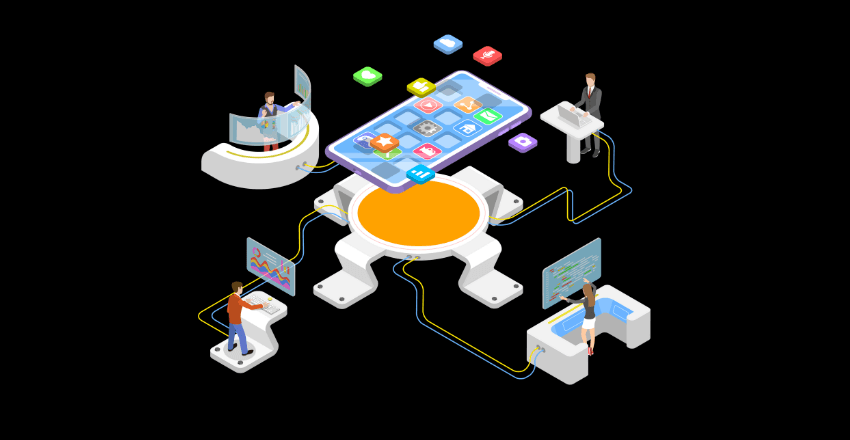
One of the key benefits of incorporating AI into app development is the ability to leverage data analysis and insights for app optimization. With AI-driven data analysis, app developers can track app performance and identify areas for improvement.
The process of app optimization begins with performance tracking. AI algorithms can detect patterns and trends in app usage, highlighting areas where the app is performing well and areas where it can be improved. This data can be used to guide decision-making around app updates and modifications.
AI-driven data analysis can also provide valuable insights into user behavior, allowing app developers to personalize the experience for individual users. By segmenting users based on their preferences and behavior, AI algorithms can recommend content, products, and services that are most relevant to each user.
Overall, AI-powered data analysis and insights can help app developers create more effective and engaging mobile apps. By leveraging the power of AI, developers can optimize app performance, track user behavior, and provide personalized experiences that keep users coming back for more.
Conclusion
As app development continues to evolve, implementing AI strategies has become essential for enhancing the user experience and driving business growth. By leveraging AI-powered chatbots, image and video recognition, predictive analytics, and other techniques, developers can create apps that are personalized, intuitive, and secure.
The benefits of AI-enhanced apps are clear. Not only do they offer improved user interactions and feedback, but they also enable developers to gain valuable insights through data-driven analysis. As technology continues to advance, we can expect to see even more innovative AI strategies implemented in app development, such as augmented reality and natural language generation.
It’s clear that AI is the future of app development. And with the right knowledge and tools at their disposal, developers can create highly-functional, intelligent apps that provide a seamless user experience. So, if you’re looking to enhance your own app development skills, be sure to explore the many benefits of implementing AI in app development.
External Resources
https://www.sas.com/en_gb/insights/articles/analytics/machine-learning-algorithms.html
FAQ

Q: How can AI be implemented in mobile apps?
A: AI can be implemented in mobile apps through coding and programming techniques. Developers can utilize AI algorithms and libraries to enable various AI capabilities, such as natural language processing, machine learning, image and video recognition, sentiment analysis, predictive analytics, fraud detection, virtual assistants, smart search and recommendation engines, automated customer support, user behavior analysis, and data analysis.
Code examples and tutorials can be found online to guide developers in integrating AI into their app development process.
Q: What is natural language processing and how can it enhance user interaction?
A: Natural language processing is a branch of AI that focuses on enabling computers to understand and interact with human language. In mobile apps, natural language processing can enhance user interaction by allowing users to communicate with the app using voice commands or text input.
AI-powered chatbots can be used to provide automated responses and assist users in various tasks. Voice recognition technology can enable hands-free interaction, while text-to-speech features can convert written content into spoken words. Language translation functionalities can also enable communication across multiple languages.
Q: How can machine learning algorithms be used to provide personalized recommendations in mobile apps?
A: Machine learning algorithms can be leveraged to provide personalized recommendations in mobile apps by analyzing user behavior and preferences. AI algorithms can analyze user data, such as browsing history, purchase history, and app interactions, to generate tailored recommendations for app users.
By understanding user preferences, machine learning can improve the user experience by suggesting relevant content, products, or services. Developers can implement machine learning algorithms using libraries and frameworks specifically designed for app development.
Q: How can AI enhance visual content within mobile apps?
A: AI can enhance visual content within mobile apps through techniques such as image and video recognition, facial recognition, and object detection. AI-powered image and video recognition can enable features like automatic tagging, content-based search, and augmented reality functionalities. Facial recognition technology can be used for user authentication or personalized experiences.
Object detection algorithms can identify and track objects within images or videos. By incorporating these AI techniques, developers can provide visually engaging and interactive experiences for app users.
Q: How can sentiment analysis improve user feedback analysis in app development?
A: Sentiment analysis, also known as opinion mining, involves using AI algorithms to analyze user feedback and detect emotions expressed in text or other forms of data. In app development, sentiment analysis can provide valuable insights into the user experience by identifying positive or negative sentiments expressed by app users.
This information can help developers understand user preferences, identify areas for improvement, and make data-driven decisions to enhance the app. By implementing sentiment analysis, developers can gain a deeper understanding of user sentiment and improve user satisfaction.
Q: What is predictive analytics and how can it provide data-driven insights for app optimization?
A: Predictive analytics involves using AI algorithms to analyze data and make predictions about future events or outcomes. In app development, predictive analytics can provide data-driven insights for app optimization by analyzing user data, app usage patterns, and other relevant data sources.
By leveraging AI algorithms, developers can identify trends, predict user behavior, optimize app performance, and make data-driven decisions to improve the overall app experience. Predictive analytics can enhance app optimization by enabling developers to proactively address user needs and preferences.
Q: How can AI enhance fraud detection and security within mobile apps?
A: AI can enhance fraud detection and security within mobile apps by utilizing algorithms for anomaly detection, biometric authentication, and overall app security. Anomaly detection algorithms can identify unusual or suspicious behavior patterns that may indicate fraudulent activity.
Biometric authentication technologies, such as fingerprint or face recognition, can enhance app security by verifying user identities. By incorporating AI-driven fraud detection and security measures, developers can mitigate the risks of fraud, protect user data, and ensure a secure app environment.
Q: How can intelligent virtual assistants enhance app interactions?
A: Intelligent virtual assistants, powered by AI, can enhance app interactions by providing personalized and context-aware support to users. These virtual assistants can understand and respond to user queries, perform tasks, and provide recommendations or suggestions.
They can be integrated into mobile apps to assist users in various activities, such as searching for information, making reservations, or controlling smart home devices.
By implementing intelligent virtual assistants, developers can offer enhanced user experiences, improve engagement, and streamline app interactions.
Q: What are smart search and recommendation engines, and how can AI be used to develop them in mobile apps?
A: Smart search and recommendation engines leverage AI to provide advanced search capabilities and personalized recommendations within mobile apps. AI-driven search engines can understand user queries, interpret natural language, and deliver relevant search results. Recommendation engines analyze user data and preferences to suggest personalized content, products, or services.
By implementing AI algorithms, developers can develop smart search and recommendation engines that enhance the user experience by providing accurate search results and tailored recommendations.
Q: How can AI-powered chatbots automate customer support within mobile apps?
A: AI-powered chatbots can automate customer support within mobile apps by providing automated responses and assisting users in resolving their queries or issues.
These chatbots can understand natural language, answer frequently asked questions, and provide personalized recommendations or solutions based on user queries. By integrating AI-powered chatbots into mobile apps, developers can enhance customer support, improve response times, and provide 24/7 assistance to app users.
Q: How can AI be used for user behavior analysis and personalization in mobile apps?
A: AI can be used for user behavior analysis and personalization in mobile apps by tracking and analyzing user interactions, preferences, and patterns.
By collecting and analyzing user data, developers can understand user behavior, identify user segments, and deliver personalized experiences or content based on individual preferences.
By utilizing AI algorithms, developers can create user-centric apps that adapt to the specific needs and preferences of individual users.
Q: How can AI be used to deliver smart notifications and alerts within mobile apps?
A: AI can be used to deliver smart notifications and alerts within mobile apps by utilizing algorithms to analyze user data and deliver personalized notifications based on user preferences, behavior, or contextual information. These smart notifications can be tailored to provide relevant information, updates, or reminders to app users.
By leveraging AI algorithms, developers can ensure that notifications and alerts are delivered at the right time, in the right context, and with the right content to enhance user engagement and app usability.
Q: How can AI-driven data analysis provide insights for app optimization?
A: AI-driven data analysis involves utilizing AI algorithms to analyze app data, user behavior, and other relevant metrics to gain insights for app optimization. By analyzing data, developers can identify areas for improvement, understand user preferences, and make data-driven decisions to enhance app performance.
By leveraging AI-driven data analysis, developers can optimize app features, user interfaces, and overall app experiences to meet the evolving needs and preferences of app users.
Benjamin Bale is a distinguished expert in the field of AI development and an esteemed author for the “Hire AI Developer” blog. With a remarkable decade-long experience in the industry, Benjamin has cemented his reputation as a leading authority in AI app and website development, as well as AI backend integrations. His profound passion for AI and its transformative potential is evident in every aspect of his work.
Benjamin’s journey into the world of AI began at Edinburgh University, where he pursued his studies in AI and Mathematics. It was during this time that he cultivated a deep understanding and fascination for the subject. Throughout his career, Benjamin has accumulated extensive experience working with industry giants such as Goldman Sachs, Tencent, and Ali Express. These invaluable experiences have not only sharpened his skills in integrating existing systems with AI APIs but have also solidified his status as a consummate professional in the field.
Currently residing in the vibrant city of London, Benjamin finds solace in his role as both an author and developer. Beyond his professional endeavors, he takes great joy in the company of his faithful canine companion, Chad, and indulges his passion for snowboarding in the picturesque mountains of France. Benjamin’s unwavering dedication to advancing AI technology, combined with his wealth of knowledge and practical expertise, make him an invaluable asset to the “Hire AI Developer” team and an invaluable resource for readers seeking profound insights into the realm of AI.



